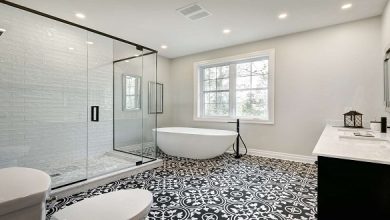Apartment Hunting in Urban Areas: The City Experience

Apartment hunting in urban areas is a unique and exciting adventure that offers a wide range of living options and opportunities. Urban living comes with its own set of advantages and challenges, making it essential to navigate the apartment-hunting process with a well-informed approach. In this article, we’ll delve into the city experience of apartment hunting, exploring the urban lifestyle, factors to consider, and valuable tips for finding the perfect urban apartment.
The Urban Lifestyle
Living in an urban area offers a vibrant and dynamic lifestyle that’s unmatched by suburban or rural living. Here are some key aspects of the urban lifestyle to consider:
1. Accessibility
Urban areas are known for their accessibility. You’re typically within walking distance or a short commute from work, shopping, dining, entertainment, and public transportation. This convenience can significantly enhance your daily life.
2. Cultural Richness
Cities are hubs of culture, offering a wide range of museums, theaters, galleries, and cultural events. If you’re interested in the arts, history, or cultural experiences, urban living provides ample opportunities to indulge your passions.
3. Dining and Entertainment
Urban areas boast diverse dining options, from gourmet restaurants to food trucks. You can explore a variety of cuisines and enjoy a vibrant nightlife with bars, clubs, and entertainment venues.
4. Career Opportunities
Cities are often economic powerhouses with numerous job opportunities in various industries. If career advancement and growth are a priority, living in close proximity to potential employers can be a significant advantage.
5. Public Transportation
Urban areas typically have well-developed public transportation systems, including buses, subways, trams, and commuter trains. This accessibility reduces the need for a car and promotes eco-friendly transportation options.
6. Community and Social Events
Cities are teeming with community events, festivals, and social gatherings. You’ll have the chance to connect with like-minded individuals and engage in a wide range of activities.
Factors to Consider When Apartment Hunting
Before diving into the apartment-hunting process in an urban area, it’s important to consider several key factors:
1. Budget
Determine your budget for rent, utilities, and other living expenses. Urban living can be more expensive than suburban or rural living, so it’s crucial to set realistic financial expectations.
2. Location
Consider the specific neighborhood or district where you’d like to live. Research the safety, amenities, and accessibility of the area to ensure it aligns with your preferences.
3. Apartment Size and Layout
Evaluate your space needs and preferences. Determine the number of bedrooms, bathrooms, and overall square footage that suits your lifestyle and any potential roommates or family members.
4. Amenities
Urban apartments often come with a wide range of amenities, such as fitness centers, rooftop terraces, and concierge services. Identify which amenities are essential to you and prioritize apartments that offer them.
5. Commute
Consider the proximity of potential apartments to your workplace or other frequently visited locations. A shorter commute can significantly improve your quality of life and save you time and money.
6. Noise Level
Urban living can be noisy, with traffic, nightlife, and city sounds. Think about your tolerance for noise and whether you prefer a quieter or more bustling location.
7. Lease Terms
Review lease terms carefully, including rent increases, lease duration, and any additional fees. Be aware of the terms and conditions before committing to an apartment.
Apartment Hunting Tips for Urban Areas
Apartment hunting in urban areas can be competitive, but these tips can help you navigate the process effectively:
1. Start Early
Begin your apartment search well in advance to have a better chance of finding the ideal apartment. Urban areas often have high demand, and apartments can get leased quickly.
2. Use Online Resources
Utilize online platforms like Google, Zumper, or Zillow to search for available apartments. These websites provide detailed listings, photos, and filters to narrow down your options.
3. Work with a Realtor
Consider working with a real estate agent who specializes in urban areas. They can help you find hidden gems, negotiate leases, and provide valuable insights about the local market.
4. Visit Multiple Apartments
Don’t settle for the first apartment you see. Visit several apartments to compare features, amenities, and prices. This will help you make an informed decision.
5. Ask Questions
During apartment viewings, ask questions about lease terms, maintenance, and any concerns you may have. This is your opportunity to gather all the necessary information.
6. Plan Your Finances
Prepare your financial documents, including proof of income, credit reports, and references. Having these ready will make the application process smoother and more efficient.
7. Be Flexible
Flexibility in your apartment requirements, such as layout or amenities, can broaden your options and increase your chances of finding the right apartment.
8. Read Reviews
Look for online reviews of the apartment building or complex you’re interested in. Reviews from current or previous tenants can provide valuable insights into the living experience.
Conclusion
Apartment hunting in urban areas offers a unique and exciting experience, with access to a vibrant lifestyle and numerous opportunities. By considering factors like budget, location, and amenities, and following these apartment hunting tips, you can find the perfect urban apartment that suits your preferences and enhances your city living experience.
Pro Tip: Search for houses for rent near me on Google, Zumper, or Zillow to find listings near you. These online resources can help you discover available apartments and houses in your desired urban location, making your apartment hunting journey more convenient and efficient.





